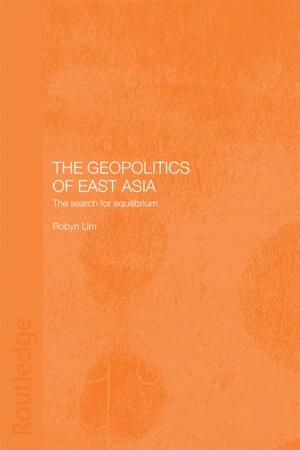| Author: | Alejandro Arroyo, Thomas Grisham | ISBN: | 9781317106869 |
| Publisher: | Taylor and Francis | Publication: | April 11, 2017 |
| Imprint: | Routledge | Language: | English |
| Author: | Alejandro Arroyo, Thomas Grisham |
| ISBN: | 9781317106869 |
| Publisher: | Taylor and Francis |
| Publication: | April 11, 2017 |
| Imprint: | Routledge |
| Language: | English |
Leading Extreme Projects explores the challenges, obstacles and techniques associated with running large projects in some of the most challenging environments and economies in the world. From an oil and gas program in the Amazon with a background of drug trafficking, delicate indigenous communities and some of the most challenging logistics; to a mining project in West Africa involving a consortium of state and private contractors plus a global supply chain. From a shipping efficiency project involving two joint venture programs with stakeholders from the European, North and South American and Asian continents; to a hostile gold project stakeholder management process in Central America involving substantial cultural differences between the north and the south.
The authors’ insights and advice will help the reader understand the global context of leadership in these extreme projects as well as the nature of the structures and teams required to create, design, operate and transfer global capital programs. In particular, they provide perspectives on the issues of leading cross-cultural teams, working amongst sensitive indigenous people and transferring knowledge to build local capacity.
This is an important reference text for senior executives involved in both the strategy and the delivery side of extreme projects, as well as for those researching and studying the field.
Leading Extreme Projects explores the challenges, obstacles and techniques associated with running large projects in some of the most challenging environments and economies in the world. From an oil and gas program in the Amazon with a background of drug trafficking, delicate indigenous communities and some of the most challenging logistics; to a mining project in West Africa involving a consortium of state and private contractors plus a global supply chain. From a shipping efficiency project involving two joint venture programs with stakeholders from the European, North and South American and Asian continents; to a hostile gold project stakeholder management process in Central America involving substantial cultural differences between the north and the south.
The authors’ insights and advice will help the reader understand the global context of leadership in these extreme projects as well as the nature of the structures and teams required to create, design, operate and transfer global capital programs. In particular, they provide perspectives on the issues of leading cross-cultural teams, working amongst sensitive indigenous people and transferring knowledge to build local capacity.
This is an important reference text for senior executives involved in both the strategy and the delivery side of extreme projects, as well as for those researching and studying the field.















